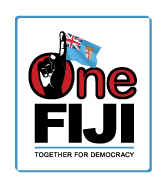Canonical ID:07SUVA292_a
Original Classification:CONFIDENTIAL
Current Classification:CONFIDENTIAL
Handling Restrictions:-- Not Assigned -- Character Count:5811
Executive Order:-- Not Assigned --
Locator:TEXT ONLINE
TAGS:FJ - Fiji | MARR - Military and Defense Affairs--Military and Defense Arrangements | PGOV - Political Affairs--Government; Internal Governmental Affairs | SOCI - Social Affairs--Social Conditions Concepts:-- Not Assigned --
Enclosure:-- Not Assigned --
Type:TE
Office Origin:-- N/A or Blank --
Office Action:-- N/A or Blank --
Archive Status:-- Not Assigned --
From:Fiji Suva Markings:-- Not Assigned --
To:Australia Canberra | Central Intelligence Agency | Joint Intelligence Center Pacific | New Zealand Wellington | Papua New Guinea Port Moresby | Secretary of State | United States Pacific Command
1. (C) Summary: An independent assessment team commissioned to consider how soon post-coup Fiji could hold elections will issue its report to the Pacific Islands Forum-Fiji interim government joint working group June 7. The team is optimistic that three of the crucial steps necessary for new elections in Fiji -- a census, redistricting and voter registration -- can be accomplished with relative little difficulty and in time to permit an election within two years. Whether Fiji's crippled election office will be able to then carry out the election itself is, in the team's view, another matter and still not clear. The assessment team found most Fiji government agencies involved in the pre-election preparatory process to be relatively well equipped and ready to do the jobs necessary to lay the groundwork for elections. The team said it thought the relevant agencies would welcome U.S. support, either in the form of financial support or technical expertise.
End summary.
2. (C) A four-member independent assessment team tasked with looking at the timeline for an election to return Fiji to democracy has told us it thinks the processes of executing and evaluating the planned 2007 national census and redrawing Fiji electoral districts in preparation for new national elections will take significantly less time than some have predicted. The team told PolOff May 24 that based on the current state of readiness, the preliminary results of the census, planned for September 16, will be ready six weeks later. The final results will be out by the end of March 2008, and census officials don't anticipate any significant discrepancies between the initial results and the final ones. The team said their visit to the national lands office, responsible for surveys and mapping, had reassured them that the redistricting work that will flow on from the census results will be done quickly and correctly. The manpower, expertise and required computer software is ready and waiting, according to the assessment team.
3. (C) The assessment team consists of New Zealand elections expert Paul Harris; Canadian elections logistics expert Bruce Hatch; and former Fiji boundaries commissioners Dr. Kesaia Seniloli and Barrie Sweetman. The team was commissioned by the joint working group. The team's terms of reference required the four to assess "the minimum time required to prepare for and conduct the next parliamentary elections in Fiji, under conditions that would ensure such elections were free, fair and credible." Sweetman told us the group had concluded that the boundaries of Fiji's 1,600 electoral "enumeration areas" would, in fact, have to be redrawn, as was widely expected. He said the team's visit to Fiji's lands office had left them with the strong impression that, once the preliminary census data are available in early November, the lands office was well prepared to carry out the re-districting, using "MapInfo" software. "The lands people are on top of it," he said.
4. (C) Sweetman said that once the census was done and the redistricting complete, the elections office would have to begin the process of registering voters. He noted that, from a purely logistical standpoint, the registration does not present a major challenge. He said census officials estimate that only about 80,000 new and revised registration records were likely, the result of new voters reaching the age of majority and the redistricting exercise. The main problems with registering voters, he said, are likely to arise within the elections office. The elections office has come under fire from the interim government and the military. The interim government has sacked the former supervisor of elections and three of the other four members of the electoral commission have resigned; others in the office have also left or been forced out since the coup. The office's funding runs out in July, according to Harris, but the remaining civil servants working there have, according to him, been assured that the office will receive the necessary further funding. (Note: The dismissed former election supervisor is protesting his dismissal and has said he will take the matter to court. On May 25, the media reported, however, that his replacement has already been named, along with three other new commissioners. End note.)
5. (C) The assessment team was careful not to discuss the political ramifications of their work. The Forum Secretariat had, in fact, only agreed to facilitate the meeting with PolOff after he made clear that the topic was the logistics of the electoral process. Nonetheless, Sweetman and the others gave all indications that they believed there are no insurmountable logistical barriers to holding an election within the 24-month timeframe favored by the Forum's Eminent Persons Group, as opposed to the 36-month timeframe the interim government prefers. The team will provide its findings to the joint working group on June 7. Thereafter the report is supposed to go to the Eminent Persons Group, and ultimately to the Forum foreign ministers. No dates have been set for the latter reviews.
6. (C) Several of the team members inquired about USG interest in supporting the electoral process, including the census and redistricting process. Poloff noted our interest in a fair and timely election and said we would consider providing appropriate support or assistance.
MANN


